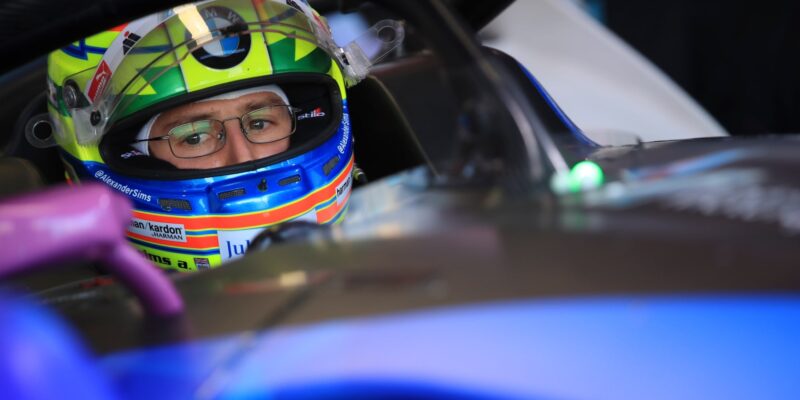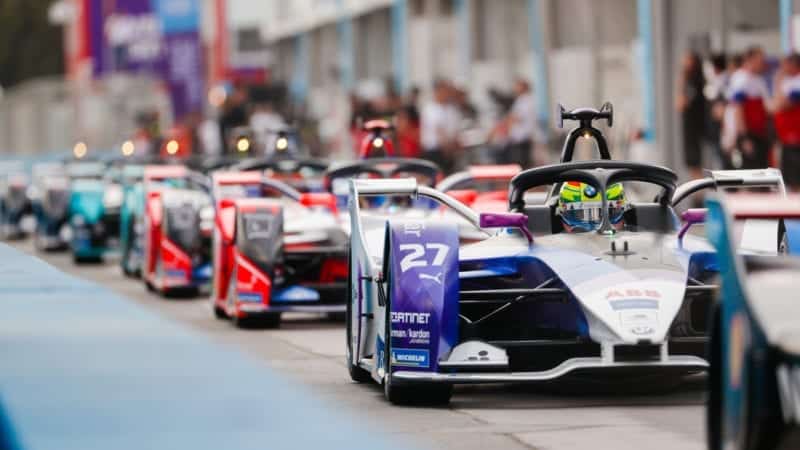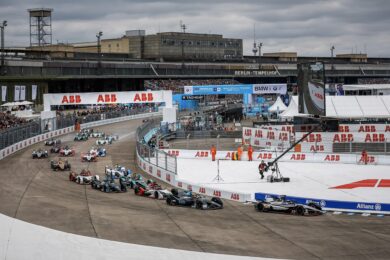“I remember with New York last season, I just couldn’t get my head around driving it on the simulator and then I went there and put it on pole and got a podium.
“At the end of the day, it doesn’t really matter if the track’s an oval or seven hairpins, we’ll go there and do our best to get on top of it.”
What could make the difference though according to Sims is the mental strain teams and drivers will be under throughout, with the number of races in such a short space of time.
“I think it will be mentally challenging to manage your energy and not get too fatigued. At the same time, we’re all professional drivers and close to the top of our game if not at the top of our game and most of us have done challenging endurance races.
“Nevertheless, Formula E cars aren’t particularly physical and we’ve got loads of time between sessions and things so I don’t think that’s going to be too tough.
“Mentally, just pacing yourself through the week and a half will be important but I just feel for the engineers.
“I’m sure they’re going to be very tired after each double-header; they’ve only got a day or two to recover and they’ve got to do work on that day anyway to prepare for the next races.”
It is the short turnaround that will also set the rhythm for drivers and teams, with very little time to reflect on finer details.
The lack of time available for engineers to gather the data, organise it into meaningful numbers and then use it along with the driver to improve for the following race could be the performance differentiator.
“Because the races are going to be at 7pm I just don’t see there a huge amount of potential to sit down and analyse things before you’re back at the track the next morning to go through the next day’s activities.
“I can imagine you won’t analyse the race before the following lunchtime when you’re done with practice and qualifying for the following day and then it’s like, ‘right, what were those lessons we needed to learn’ because you’re facing the next race.
“Half an hour after the race you can’t analyse things because you need to go through and understand the data and start picking the bones out of it.

Could Sims close the gap and win the 2019/20 Formula E championship?
Gregory Lenormand / DPPI
“With all the races, it’s going to be difficult time-wise with the engineers, in particular, to get on top of one day’s set of information to fine-tune things and do better the next day.”
You combine these variables and the races look a little less straightforward than one might expect on paper.
As in other series though, the return races have not been predictable, to say the least. Whether it’s two wheels or four, motor sport’s return in 2020 has given fans plenty of excitement and surprise.
Formula E then has a fair amount of expectation to live up to in comparison, though that has never prevented the electric series from providing chaotic, carnage-filled thrillers in the past.
“To be honest, Formula E – it’s not uncommon to have eventful races anyway – so being someone who’s able to stay calm and execute a good race straight out the box in Berlin, I think there will be a reasonable amount to gain but it’s so tough in Formula E to judge situations.
“I feel for anyone who does have a mishap, you can look a bit of a fool quite easily and it’s so difficult to judge those situations. How do you manage your energy? When do you go for that overtake or don’t? What person around you is managing and what is their mindset, what are they planning? Conserving their energy or fighting you? It’s really difficult to figure it out.
“I think that first race back might be a bit of a fireworks affair.”



